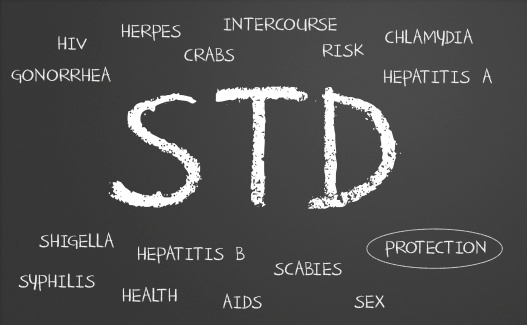Sexually transmitted diseases (STDs) spread mainly through sexual contact, while some of these infections also transfer from mother to child. These diseases are more common in people who are in their teens or early twenties because that is when young people may have unprotected sex. The severity of STDs may vary as well – they may sometimes cause slight discomfort like in public lice or may prove lethal like in case of AIDS.
How Do STDs Affect People?
You can contract an infection when having sex without using any form of protection, such as a male or female condom. How do STDs affect people? It may vary a bit and may even be different for men and women.
In Women
Women usually experience serious issues when contracting STDs. These diseases may cause several complications because they usually produce no visible symptoms for quite some time. Here is more about some of the most common health complications associated with STD infections:
- Infertility: When left untreated, STDs can cause infertility in women.
- Ectopic Pregnancy: It happens because of a sexually transmitted disease such as gonorrhea or Chlamydia. In this condition, a fertilized egg fails to implant itself inside the uterus. Ectopic pregnancy can lead to life-threatening consequences.
- Pelvic Inflammatory Disease (PID): If you leave Chlamydia untreated, you may develop PID. Two in every five women eventually develop PID when they do not seek treatment for Chlamydia. PID may lead to ectopic pregnancy, severe pelvic pain, and infertility.
- Infections of Newborns: If you are pregnant and infected with herpes virus, syphilis, HIV, or hepatitis B, your newborn may also contract the infection. This may lead to stillbirth, premature birth, and birth defects in newborns.
- Heart Disease and Brain Function: So many neurological and cardiovascular problems may develop when syphilis is left untreated.
- Cervical Cancer: Women may develop cervical cancer due to certain types of the human papillomavirus (HPV). This sexually transmitted disease can also cause genital warts.
- Increased Risk of HIV Transmission: When you have gonorrhea or Chlamydia, you are at a greater risk of becoming infected with HIV as well.
In Men
How do STDs affect people, and men, in particular? STDs cause several complications in men.
- Human Papillomavirus may lead to the development of penile cancer. It may also cause cancer of the anus in men.
- Chlamydia and gonorrhea causes serious complications in women, but they can also produce Epididymitis in men. Chlamydial infection may also lead to Reiter's Syndrome in men.
- Gonorrhea may cause urethral stricture in men.
- STDs can cause infertility in men, but infertility from STDs remains a more common issue for women than men.
Who May Get an STD?
You may get an STD when you have sexual intercourse with your partner. Anyone engaging in anal sex, oral sex, or vaginal sex can end up contracting an infection. These infections can affect people from all age groups and ethnic backgrounds. Even when young women have sex with another woman, there are still risks for STDs. Moreover, you are at a greater risk of developing infections if you become sexually active at an earlier age.
How to Reduce Your Risk of Getting STDs
 Now that you know the answer to your question, "How do STDs affect people?" you may also be interested in knowing some ways to reduce your risk of getting sexually transmitted infections. The only surefire way to not get STDs is to not have sex, while it is not possible all the time. It is therefore important to use protection when you have sex. Keep the following tips in mind when having sexual contact:
Now that you know the answer to your question, "How do STDs affect people?" you may also be interested in knowing some ways to reduce your risk of getting sexually transmitted infections. The only surefire way to not get STDs is to not have sex, while it is not possible all the time. It is therefore important to use protection when you have sex. Keep the following tips in mind when having sexual contact:
- Never have sex without condoms. You should ask your partner to wear a condom before having anal, oral, or vaginal sex. It is easy to find latex condoms, but you can also find polyurethane male and female condoms if you are allergic to latex.
- Be sure to use a water-based lubricant when having sex. Using lubricant will ensure that the condom does not break due to friction. Avoid using lubricants that contain fat or oil because it may weaken latex and make it to break.
- Limit the number partners you choose to have sex with because you are at a greater risk of contracting infections if you change partners too often.
- Never agree to have sex with anyone who have visible signs of an STD, such as rashes, sores, or discharge from the genital area.
- Talk to your doctor and have you and your partner checked for STDs before having sex.
- Avoid using drugs or alcohol before having sex because this clouds your judgment and may make you have sex without using a condom.
- Educate yourself about STDs. Know about the most common symptoms associated with most common sexually transmitted diseases. Above all, talk to your doctor and to clearly understand, "How do STDs affect people?"
